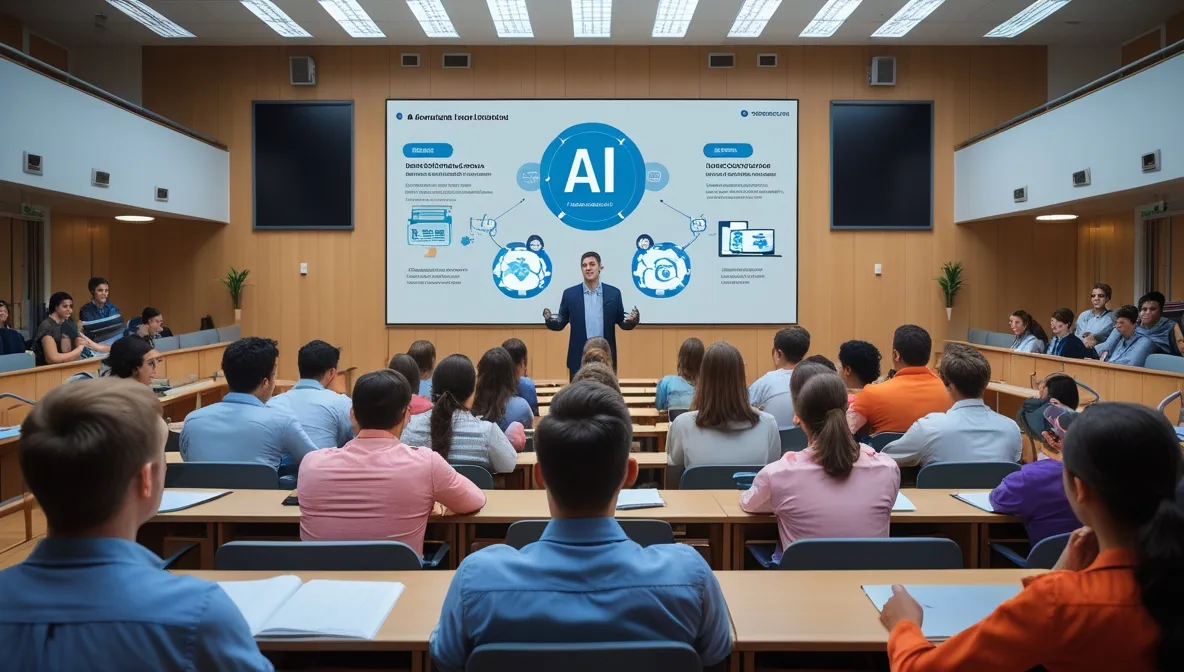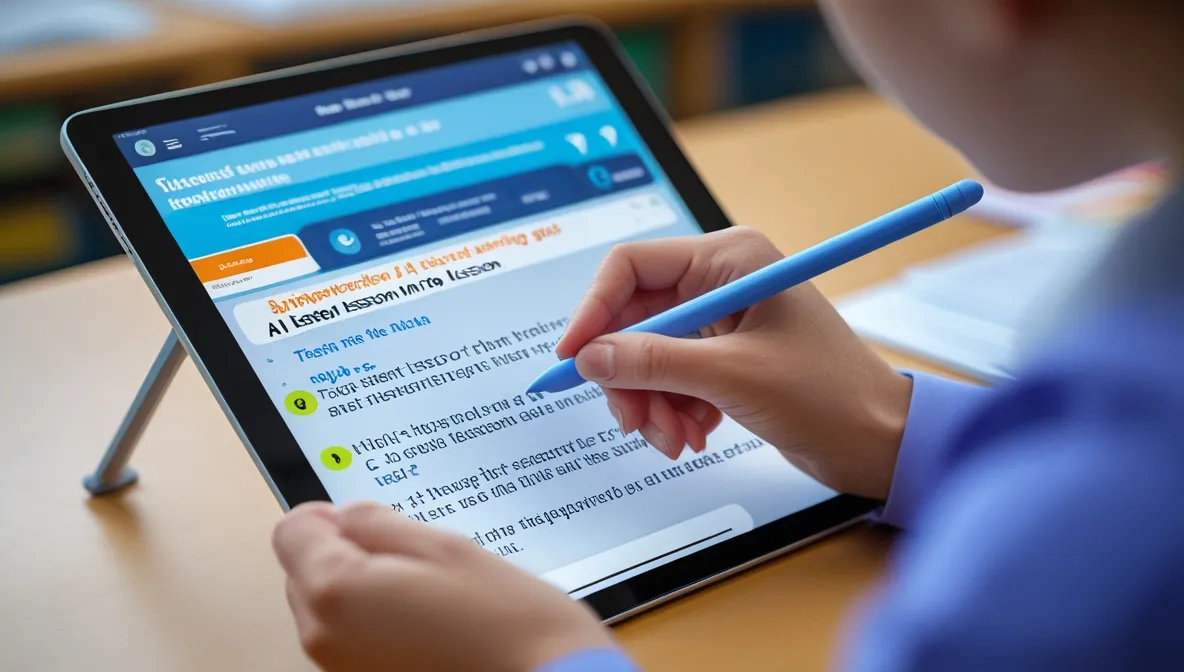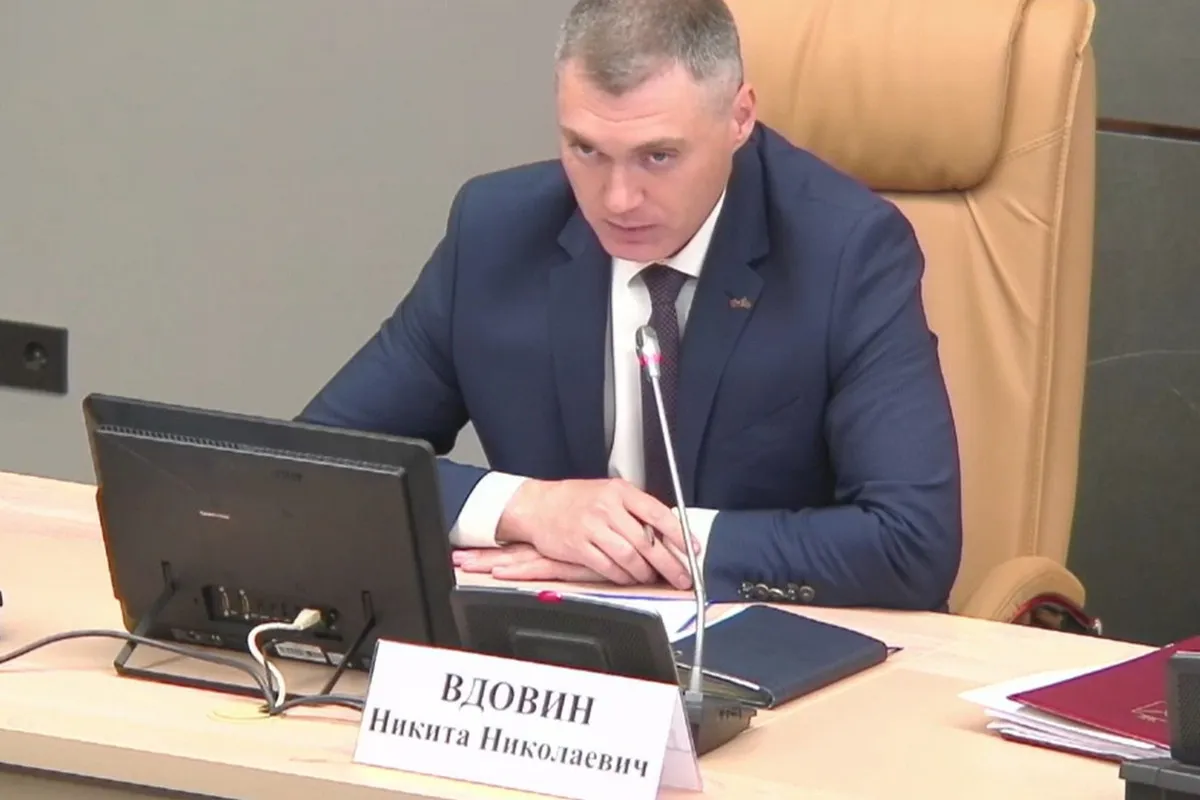Making Contact: Saratov Teachers Learn to Work with Neural Networks
More than 2,500 educators gathered for a large-scale lecture by the Russian Knowledge Society to explore how artificial intelligence can transform teaching — from lesson planning to academic integrity. The initiative shows how Russia is building a practical framework for integrating AI into education.

2,500 Teachers Become Students Again
“How can you build a lesson plan in 30 seconds?” “How do you tell if a student used ChatGPT?” “How can text be adapted for different learning levels?” These are no longer futuristic questions—they’re part of everyday discussions in Russian classrooms.
In Saratov, an interactive lecture organized by the Russian Knowledge Society brought together over 2,500 teachers and kindergarten staff. The speaker, Oleg Panin, founder of Center-Game, demonstrated how AI can support educators in creating materials and automating repetitive tasks.

“A third of teenagers already treat AI as something human-like,” Panin explained. “They turn to it for questions, schoolwork, and even life advice. The line between viewing AI as a tool or as a person is fading fast. The future isn’t in databases — it’s in prompt bases. That’s why it’s crucial to learn how to use AI for your specific task.”
This initiative is part of a wider regional program: more than 2,500 educators in Saratov have completed hands-on AI training. The approach is interactive and practical, helping teachers understand how AI can save time on routine work and enable more personalized learning experiences for students.
Overcoming Bias and Building Skills
Experts expect the region to move from one-time lectures to ongoing certification and distance-learning programs. Standardized guidelines for using AI in different subjects and ethical frameworks for handling student data are already being drafted. The Russian Knowledge Society launched an online course in September 2025 to help teachers detect AI-generated homework.
“Every teacher needs to form a personal professional stance on AI — when it’s ethical to use it, how it affects assessment criteria, and how to maintain academic integrity,” said Alexandra Buychik, head of the Knowledge Academy platform. By understanding neural networks and testing them in real conditions, teachers can make informed decisions — without fear or bias.

From Pilot Projects to National Frameworks
Across Russia, AI literacy in education is expanding from theory to institutional practice. Saratov State University has launched the Consilium Center, where young educators discuss how to integrate AI into various subjects.
The Razumovsky State Medical University offers a 144-hour program on AI applications in research and education, combining academic rigor with hands-on training. Graduates learn to build entire continuing-education courses using AI tools. These initiatives align with national programs promoting digital transformation in education, from AI Olympiads to methodological handbooks — forming a developmental 'ladder' from first exposure to professional mastery.

AI in the Classroom, Here and Now
The Saratov lecture marked more than just an awareness event — it signaled a systemic shift. Artificial intelligence is no longer a futuristic concept but a working, accessible classroom tool. For Saratov, this means higher digital maturity in education; for teachers, expanded professional capabilities; for students, more flexible and relevant learning. If successful, this local experiment could become a national model for AI education across Russia.










































